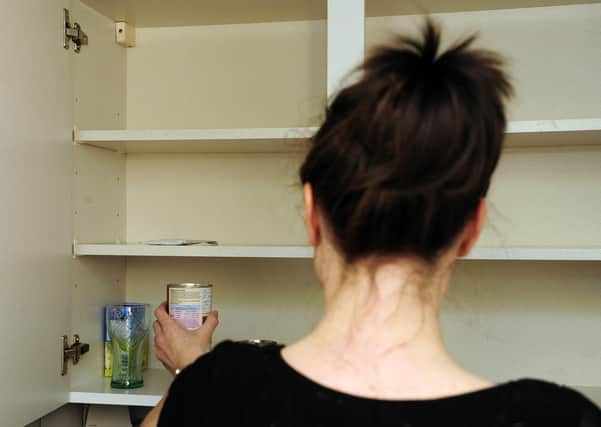Coronavirus: Society can’t go back to food banks after this – Ian Swanson


THE coronavirus pandemic has prompted unprecedented state action in the UK. Bars, restaurants, cinemas, theatres and gyms have been told to close. Emergency laws will allow the Government to shut down ports and airports and give police the power to detain people suspected of having the virus
And Chancellor Rishi Sunak is using Government money to preserve jobs, support businesses and help mortgage payers.
Advertisement
Hide AdAdvertisement
Hide AdThat this is happening under a Tory government which would normally hold its hands up in horror at the idea of state intervention serves to highlight the drastic state of affairs – though Boris Johnson typically trivialised it with his talk of “the ancient, inalienable right of the free-born people of the United Kingdom to go to the pub”.
Critics say Government cuts over recent years have left the UK in a weaker position than it should be to fight the virus crisis, with an underfunded health service and an inadequate welfare system.
Many will struggle
It is, of course, welcome that the Government is now doing all it can to secure the equipment, resources and staffing needed for the NHS to cope and has set up a special job protection fund, paying 80 per cent of the wages of people who would otherwise be laid off.
But many individuals and families on low incomes will still struggle. There are still big gaps where the Government could and should take action to help those facing the worst consequences of this crisis.
Advertisement
Hide AdAdvertisement
Hide AdThe well-documented health inequalities in UK society mean poorer people are more likely to have other illnesses, which leaves them among the most vulnerable to Covid-19. Yet statutory sick pay is not available to the poorest workers – you need to earn at least £118 per week to qualify.
For those who are entitled to it, it is just £94.25 a week and the Government has made no move to increase it, despite UK Health Secretary Matt Hancock admitting he could not live on so little.
The number of people forced to resort to food banks was already growing fast before coronavirus arrived. But food banks say demand is now soaring just as stocks dwindle because of panic buying and volunteer numbers shrink as over-70s self isolate.
Dependent on charity
If Mr Johnson and his colleagues really want to make sure everyone can get through this they need to address the plight of the poorest – and do it permanently, not just to tide them over during the pandemic.
Advertisement
Hide AdAdvertisement
Hide AdFood banks should never have been necessary in what is one of the world’s richest economies. But benefit cuts and poverty pay have left hundreds of thousands of people across the UK dependent on charity to get enough to eat. If the Government were to make sure during this crisis everyone had enough money not to rely on food banks, how would it justify ending that when the pandemic passes? The problem is the crisis for the recipients will not have passed. They would still be left on the low pay or miserly benefits they had before and they would be back to the food banks too.
Increased state intervention in the UK’s economy and society during the Second World War paved the way for the NHS and the welfare state in the following years.
The state’s vital role in the coronavirus crisis offers another opportunity to make lasting changes to help those at the bottom of the pile.
Comment Guidelines
National World encourages reader discussion on our stories. User feedback, insights and back-and-forth exchanges add a rich layer of context to reporting. Please review our Community Guidelines before commenting.